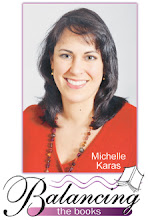Then We Came to the End by Joshua Ferris, a National Book Award Finalist
 Then We Came to the End by Joshua Ferris
Then We Came to the End by Joshua FerrisMy review
rating: 4 of 5 stars
a>
Anyone who has worked in a "cubicle city" will see the humor and genius in Joshua Ferris’ novel "Then We Came to the End."
In a phrase that mimics the cadence and portent of "It was the best of times. It was the worst of times," Ferris begins his tale with "We were fractious and overpaid. Our mornings lacked promise. At least those of us who smoked had something to look forward to at ten-fifteen. Most of us liked everyone, a few of us hated specific individuals, one or two people loved everyone and everything."
The story is told from the anonymous "we" point of view until, about half-way through the 385-page book, it turns into a first-person account of one of the characters, returning to the collective "we" to finish up.
The "we" speak, meant to imitate the way corporations view themselves in the first-person plural, is effective in communicating the way, in large companies, there is a collective mentality, and also that there are cliques. There are the cool kids and the geeks, those on their way up and those on their way down, the dedicated and the non-caring.
Everpresent to everyone is the constant threat of layoffs.
Not long ago, I worked for a large company where I had my own "cube" in the middle of a large room. In the corners of the room were the offices, complete with coveted windows and doors that could be shut, of the higher-ups. On the edges of the room were the slightly larger cubes of the soon-to-be higher ups. And in the middle, with the shortest and farthest away from the windows cubicles, were the peons like me. Personalities ran the gamut, and with such close quarters we were exposed to each other’s quirks. To my right was a colleague who constantly talked to his wife on the phone, using (quite audible to everyone in the vicinity) wince-causing babytalk and kissing noises. Across the aisle was a guy who spent most of his workday on Jdate. Like most workplaces, it was a group of people with whom you spent a great chunk of your day, but might never choose to associate with otherwise. It was a culture in and of itself.
Ferris had his own experience with corporate culture.
In the reader’s guide at the end of his book, Ferris explains: "I did yeoman’s work in advertising four about three years, and I was fascinated with the behemoth structure in place — the hierarchies, the coded messages, the power struggles. I thought such an awesome, malignant, necessary, pervasive, inscrutable place deserved a novel’s attention."
The "we" of the novel were a group of office buddies whose work had become rather unimportant or overimportant to the point of their inability to act. They are dissolved into the daily grind of coffee breaks, endless meetings, lunch trips, and gossip. And for them, for everyone in their company, layoffs loom large.
The possibility of a layoff is enough to make any worker freak out, as I found in my former cubicle city job. In Ferris’ book, some of the characters go to extremes. A man who feels he’s lost the loyalty of his friends and his grip on reality does something irrevocable. A woman who discovers she has a terminal illness chooses to ignore it and throws herself into her work.
As for the mid-way change in perspective to a first-person narrative, Ferris describes the “interlude” as “the book’s emotional heart. Without it “Then We Came to the End” would have been only an elaborate, if amusing game.” Although it was unexpected and somewhat jarring – all of a sudden you go from the anonymous “we” into someone’s private thoughts and fears - I believe this section was effective in bringing the humanity back to the individual worker. After a bit, the book takes us back to the group perspective, which before had become a bit tedious but now we can view in a new light. And there’s where it “comes to an end.”
Ferris’ book is entertaining, witty, enlightening, observant and true. Recommended for anyone stuck in that cube, with no door and no privacy, under the hum of the fluorescent lights and far from the windows, in the daily grind.
View all my reviews.
Labels: book reviews, fiction, Joshua Ferris., Michelle Karas, National Book Award Finalist, Then We Came to the End
 RSS
RSS


